Nusaybin (pronounced [nuˈsajbin]; Akkadian: Naṣibina; Classical Greek: Νίσιβις, Nisibis; Arabic: نصيبين, Kurdish: Nisêbîn; Syriac: ܢܨܝܒܝܢ, Nṣībīn; Armenian: Մծբին, Mtsbin) is a city in Bakur (Northern Kurdistan) inside the borders of the Republic of Turkey.
Nusaybin is immediately north of the border with Syria, opposite her twin city, Qamishli, from which she was separated when the borders were drawn. The Jaghjagh River flows through both cities.
With a history going back nearly 3,000 years, Nusaybin was ruled and settled by various groups, having first been recorded in history as the Aramean settlement Naşibīna in 901 BCE.
In 2009 Nusaybin’s population was recorded as 83,832, including Kurdish, Sunni and Yezidi residents, with a small Christian community.
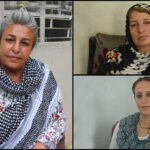
The Jaqhjagh River pollution has put the people living near it at risk from life-threatening diseases.
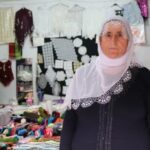
Bedia Şimay and Bedriye Tırak are the owners of a handicraft shop located in the Sur district of Amed. Two sisters sell the crafts made by women living in provinces such as Batman, Mardin, and Siirt in their shop to earn a livelihood. “We have provided employment opportunities for hundreds of women until now,” Bedia Şimay said.
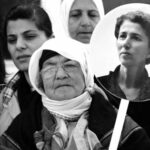
Women occupy a central role in the political project of « democratic autonomy » defended by the Kurdish liberation movement for the past fifteen years. We often hear talk of the parity practiced in all its institutions and of the male-female co-presidencies. But the accomplishments and the strength of the women’s movement go well beyond that and manage to unite a great number of women.
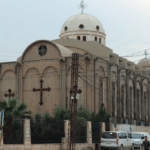
Regarding language, history and religion, we can divide the Christian community in North and East Syria into three groups: Syriac, Assyrian and Armenian. The first two are culturally close to one another and share a common heritage, but separated on points of language and by historic theological differences.
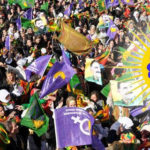
Kurdistan is not a poor country; it is a country that is being made poor. The lack of Coca Cola does not make us poor. Capitalist modernity, as Ocalan defines it, makes us poor. It wants to belittle people’s own production and to impose on the society capitalist mass production. That’s why the co-operatives and the communes that we have been establishing made the state feel uncomfortable. Because this represents a logic of rupture from mass production and a move towards the use of our own resources. The state was losing its market in Kurdistan.





